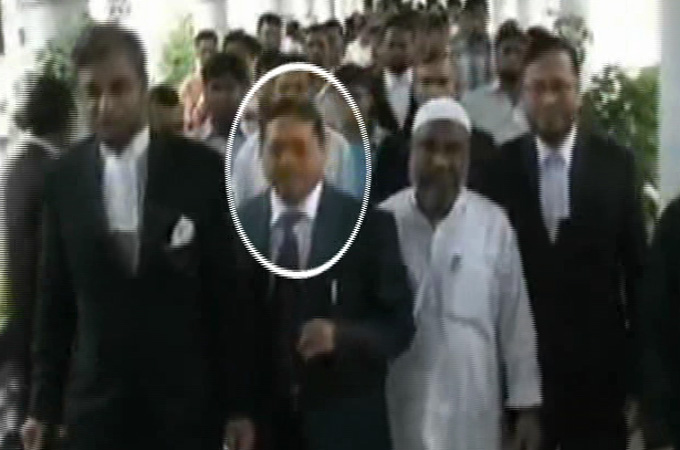Bangladesh Jamaat leader sentenced to death
War tribunal convicts Mohammad Kamaruzzaman on charges of genocide and torture of unarmed civilians during 1971 war.
Last Modified: 09 May 2013 09:44

Previous convictions against Jamaat leaders led to protests and violence throughout Bangladesh [Al Jazeera]
A Bangladesh war crimes tribunal has convicted and sentenced assistant secretary-general of the Jamaat-e-Islami party to death for war crimes, raising fears of clashes between the police and supporters of the Islamist leader.
Mohammad Kamaruzzaman, 59, was found guilty on charges of genocide and torture of unarmed civilians during the 1971 war for independence from Pakistan, lawyers and tribunal officials said on Thursday.
He had previously been acquitted for two of the seven original charges.
One of the charges that carried the death penalty was being a commander of a massacre of 120 people.
Analyst David Bergman told Al Jazeera that there were cheers outside the court when the verdict was announced.
Kamaruzzaman, who had pleaded not guilty through his lawyers, was accused of committing multiple abuses during the country's liberation war.
He was found guilty of leading his followers to kill at least 183 people in his home district of Sherpur in northern Bangladesh.
The prosecution said he formed the group Al-Badr to collaborate with the Pakistani army and led them to kill unarmed people and rape women.
Bangladesh says the war left three million people dead, 200,000 women raped and forced millions to flee to neighbouring India.
Previous convictions of other Jamaat-e-Islami leaders, including two that carried the death penalty, led to protests and violence throughout Bangladesh.
Obaidul Hassan, the head of the three-judge tribunal, said the charges had been proved beyond a doubt and sentenced him to death.
Defence lawyer Ehsan Siddiky said justice was denied to his client and promised to appeal.
The supporters of the largest Islamic party in the country claim the tribunals are a politically-motivated attempt to persecute their leaders.
"The tribunal said that anyone who committed these crimes is an enemy of humanity," Bergman said.
"The Jamaat-e-Islami will not be happy with this verdict, but it is unclear at this point whether there will be violence.
"There has been constant criticism from the defence lawyers that they are dealing with a politicised court process and that they are being prosecuted because they are part of an alliance that is against the government.
"The argument of the politicisation of these tribunals will continue."
The Jamaat, a key part of an opposition coalition, had backed Pakistan during the independence war, but has denied its leaders were involved in war crimes.
Source: Al Jazeera
